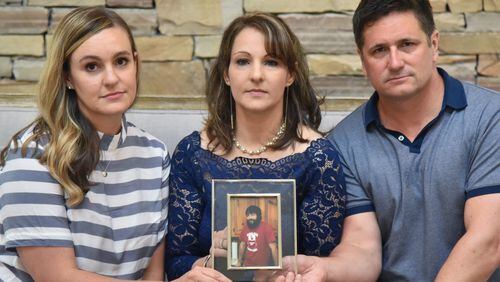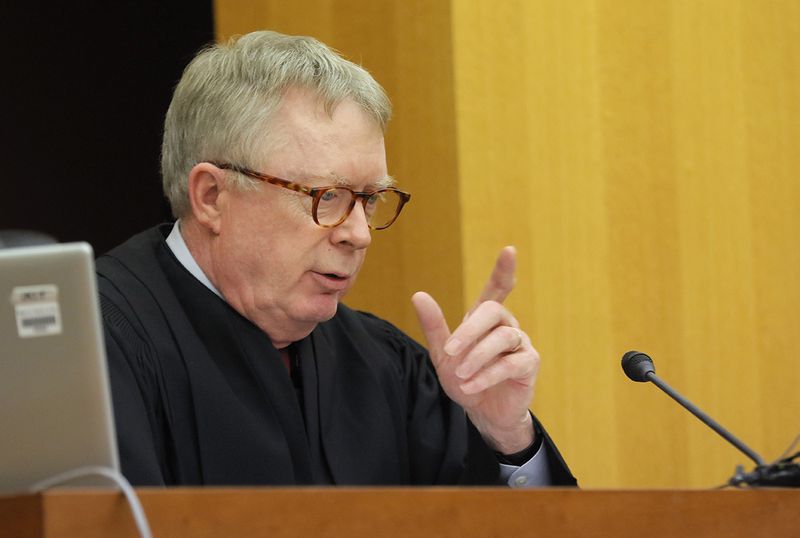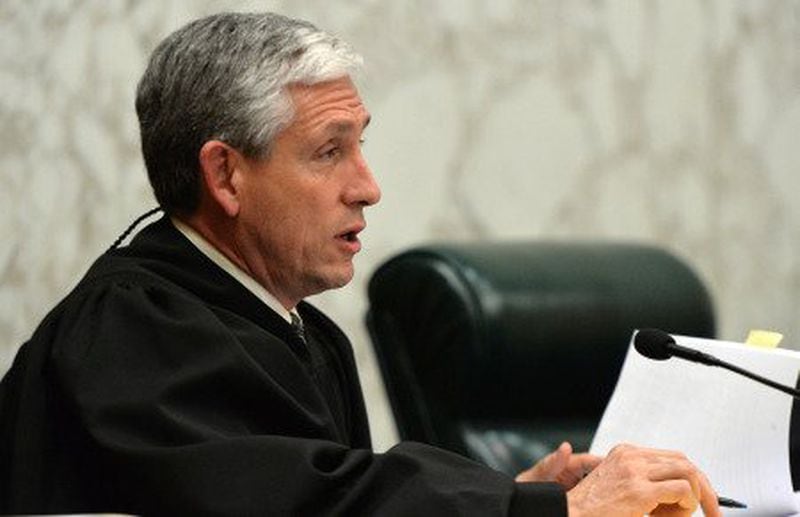Georgia Supreme Court justices on Tuesday talked about passing joints to one another down the bench, handing out marijuana brownies and even lacing a beer with drugs.
They were, of course, speaking hypothetically. But the banter sets the stage for what may be a precedent-setting ruling defining when a fatal overdose becomes a crime. At issue is a Fulton County case where one man injected heroin into the vein of anther who went on to overdose and die. A grand jury indicted Graham Williams for his role in the death of 28-year-old Gregg Ivey on Oct. 21, 2015. But a judge later dismissed the indictment.
The closely watched case has touched on Georgia's 911 Medical Amnesty Law and is seen as a critical test for prosecutors battling a rising tide of overdoses involving opioids, methamphetamine and other drugs.
The bushy-bearded Ivey, who helped stage concerts, had long struggled with substance abuse. He’d agreed, at his family’s urging, to enter a rehabilitation facility.
Before going to rehab, though, Ivey apparently decided to party one last time. He went to a bar in Canton and downed shots and beers. He also wanted to try heroin for the first time, even though he hated needles, according to police records.
That night, Ivey wound up in the basement of his rental home in Milton with Williams and two others, Drew Kennedy and Alexis Gladden. As Kennedy began loading a syringe for Ivey, Williams jerked it away and began adding more, Gladden testified at a court hearing last year. When she told Williams that made her uneasy, he said he wanted Ivey “to feel it and have a good time,” she testified.
After Williams injected him, Ivey sat on a sofa and exclaimed how wonderful he felt. He then collapsed and was later pronounced dead at North Fulton Hospital.
Williams was charged with felony murder and an underlying felony count of distribution of heroin.
His lawyers asked for the indictment to be thrown out on a number of grounds, including the state’s 911 amnesty law. Adopted in 2014, the statute encourages drug users to stay at the scene of an overdose instead of running away. It grants immunity from prosecution to those who call 911, remain at the location and provide care for the overdose victim.
Williams has said he did that and even helped perform CPR on Ivey until EMTs arrived. “I was doing everything I could to help him,” he said in an interview last year.
But Gladden testified that when she initially tried to call 911, Williams wouldn’t let her. After a 15-minute wait, she testified, Williams allowed the 911 call to be made after Gladden and Kennedy agreed to tell police that Ivey injected the heroin himself.
Last year, Judge John Goger dismissed the indictment. Because Williams injected the fatal dose at Ivey's request and because Ivey had purchased the heroin for himself, this could not be distribution of heroin under Georgia law, the judge said. And without the distribution, there can be no felony murder, Goger said.
Credit: Bob Andres
Credit: Bob Andres
In his order, Goger said he wasn’t going to rule on the amnesty issue because he determined that injecting heroin into someone at that person’s request wasn’t drug distribution. Goger also noted that Georgia’s appellate courts had never addressed such an issue.
That led to Tuesday’s unusual discussions by the justices as to what exactly constitutes distribution.
“If I go to your house and I take with me my own drugs … and I hand it to you and ask you to pour it in my drink and I drink it,” Chief Justice Harold Melton said. “You could be charged with distribution?”
“So if I say hold these drugs for a second while I hold my beer, you give them back to me and I pour them into my beer,” Justice Nels Peterson said. “Have you distributed?”
“It’s not an unusual circumstance, I am told, that people pass around a joint,” said Justice David Nahmias, jumping into the fray.
“Every time I take a joint and pass it down the line, that is a distribution? Or any other illegal substance. … A marijuana brownie. I pass it to the next person who takes a bite and passes it to the next person. That is now distribution?”
Yes, that was distribution, Fulton prosecutor Lindsey Rudder replied, in varying ways, to all three justices, some of whom raised their eyebrows or smiled in skepticism.
While Rudder’s arguments on drug distribution may not have convinced some of the justices, her procedural arguments seemed to resonate with the court. Williams’ attorneys never formally filed a motion to dismiss the indictment by contending that Williams’ injection of heroin did not amount to drug distribution. Because of this, Goger had no basis for dismissing the indictment the way he did, Rudder said.
The court will issue its decision in the coming months.










